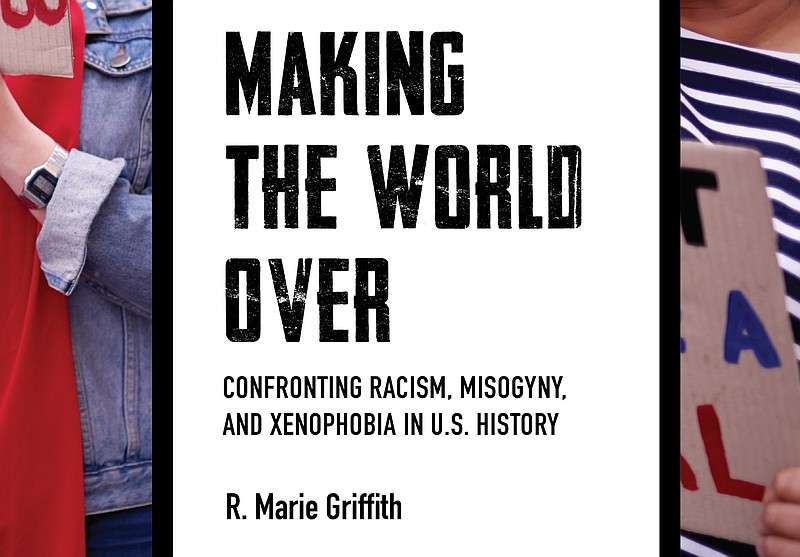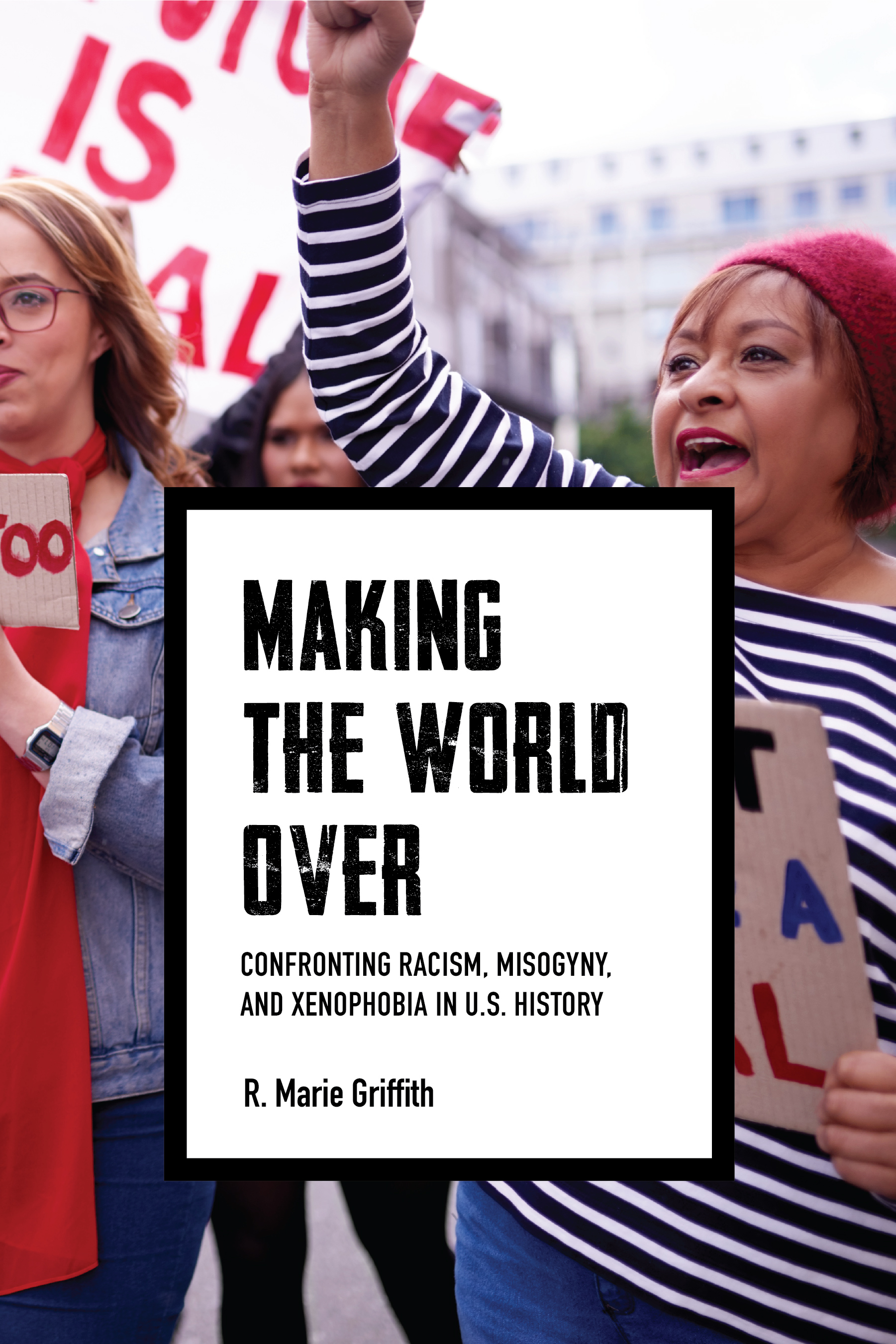"MAKING THE WORLD OVER: CONFRONTING RACISM, MISOGYNY AND XENOPHOBIA IN U.S. HISTORY" by R. Marie Griffith (University of Virginia Press, 208 pages, $30).
While the title of R. Marie Griffith's new collection of essays, "Making the World Over: Confronting Racism, Misogyny and Xenophobia in U.S. History," may be an intimidating mouthful, the book lives up to its ambitious promise: It absolutely confronts.
Chattanooga-born Griffith, a professor at Washington University in St. Louis who specializes in the history of American religion, mines the depths of America's past, arguing that our beloved national timeline is intertwined with - and often defined by - past injustices toward women, people of color and immigrants, sins that continue to haunt us today.
The book's title pays homage to the author James Baldwin, who said, "We made the world we're living in, and we have to make it over," suggesting that recalibration and reform are necessary to overcome the nation's most deep-seated challenges.
Americans, like any proud people, have a complicated relationship with history. It's a struggle that has most recently manifested itself through fierce debates over whether to honor defenders of the former Confederacy or allow the teaching of critical race theory in public schools. On one hand, we are a nation that defeated the Nazis and liberated concentration camps; we spearheaded COVID-19 vaccination research; and we have welcomed millions of immigrants to our shores. But we are also a people who tolerated slavery for centuries, built a nation that kept women from voting until the 20th century and elected an executive to office who intentionally removed immigrant children from the care of their parents.
What are we to make of this complicated legacy? For Griffith, the only answer is brutal and painful honesty. Her book embarks on what she calls the pursuit of a "forthright facing of history." The collection, derived from a lecture series delivered at University Baptist Church in Charlottesville, Virginia, aims to confront the "complicated truths in the telling of our nation's history" by showing how past actions still resonate today.
"Truthfulness," Griffith writes, "as a rigorous project of history-telling is a value that I believe we need to be discussing and working to cultivate as part of the necessary work of strengthening the best parts of our democracy."
Griffith's essay collection assembles some of the nation's thorniest and most divisive issues into a compact single volume. This doesn't always make for easy consumption - a summer beach read this is not - but there is great value in a challenge. As a practitioner from any of the major world religions will attest, true repentance only emerges from true understanding, and true atonement almost always requires some form of labor.
To ignore these blemishes in our past might make us temporarily feel better, but it comes at a cost. A refusal to understand the darkness that motivated the worst impulses of prior generations restricts us from addressing the wrongs of our own time. Avoiding hard truths leaves us, Griffith writes, cheering on "a gullible form of patriotism."
The book could hardly arrive at a more poignant moment. After more than a year of intense reckoning over race relations in the U.S., and during a period when state legislatures are actively considering - and in some places, passing - bans on public school curricula that suggest systemic racism shaped many of the nation's most elemental institutions, these issues are ripe for serious study.
Difficult topics like these also come at a challenging time for those seeking the truth. Griffith argues that the only way to understand our present is to see the past clearly. But is this really possible when we can't even agree on the basic facts of the present? The presentation of history, of course, is always subjective, and Griffith doesn't pretend to be an unbiased observer. She approaches history through a lens of her own, just as anyone would, and provides us with a perspective of our national legacy from a fresh angle.
Readers won't always agree with her conclusions, but the facts she presents are undeniable. At a time of rising tribalism and entrenchment into partisan corners, these are the difficult conversations about the past and present that hopefully will open the door to a future built on common ground.
For more local book coverage, visit Chapter16.org, an online publication of Humanities Tennessee.


